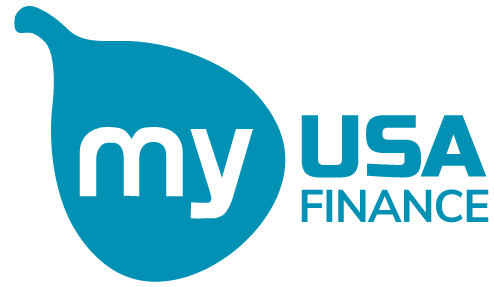Are you ready to take control of your finances in 2024? As you approach the end of 2023, it’s time to start thinking about your financial goals for the new year.
More Americans are planning to make finance-related New Year’s resolutions for 2024 compared to 2023, according to WalletHub’s survey.
Here at My USA Finance, we created a list of financial resolutions and expert tips to help you achieve your financial goals in 2024. From consolidating credit card debt to boosting your savings, here are ways to improve your financial health this New Year:
5 Financial New Year's Resolutions for 2024
As the new year arrives, it’s the perfect opportunity to shape your financial future. Consider these five essential financial resolutions for 2024.
1. Create A Personal Budget
Tracking your expenses is a valuable way to understand better where your money goes each month. Track spending, find areas to cut expenses, set guidelines for affordable spending. A clear budget can help you achieve this.
We suggest using the 50/30/20 budget method. Allocate 50% of your income for essentials, 30% for optional expenses, and 20% for savings and debt repayment. A budget helps you know how much you can spend and where you can save money.
2. Start an Emergency Fund
Having an emergency fund to cover unexpected expenses such as home or car repairs is important. To start saving, and build an emergency fund try to save enough money to cover three to six months of living expenses. Keep this money in a separate savings account that earns a high interest rate.
Here are four tips to help you get started:
- Evaluate your expenses and identify areas to cut costs.
- Set a savings goal and work towards it.
- Set up automatic contributions to make saving easier.
- Gradually increase your contributions over time to reach your savings goals faster.
3. Improve Credit Score
A good credit score varies depending on the scoring system. For example, FICO considers a good score of 670 to 739, while the VantageScore scale considers 661 through 780 good.
Building a good credit score can benefit you in the long run. Improving your credit score can increase your chances of obtaining better credit cards and lower loan interest rates. Additionally, it can also open new opportunities for finding a job or renting an apartment.
Putting in the effort to establish a strong credit score is worth it. To increase your credit score, consider these tips:
- Pay all bills on time and in full.
- Lower your credit utilization ratio.
- Don’t apply for new accounts too often.
- Get credit for paying monthly utility and cell phone bills on time.
- Set up autopay or calendar reminders.
How To Get Your Credit Score
Understanding and managing your credit score is crucial for financial health. Various services are available to help you view, monitor, and enhance your credit score. Here’s a look at some notable options:
- Experian Boost™: This service provides a free Experian Credit Report and FICO® Score. Experian Boost™ can increase your credit score. It does this by adding utility and mobile phone bill payments to your credit history. Credit scoring did not previously take these payments into account.
- ViewFreeScore: Gain instant access to your credit scores from all three major credit bureaus. This service allows you to monitor your credit status comprehensively.
- PFM Verify: A comprehensive Personal Financial Manager offering budget tracking, financial planning tools, and debt reduction strategies, along with insights into your financial wellness.
- FreeScore360: All three credit bureaus offer monthly updates on your credit scores. It features daily monitoring for suspicious activities that could affect your credit and identity. It provides detailed Credit Insights to help you understand factors impacting your score. Personal Credit Specialists are also available to assist in interpreting your credit information.
Each service provides unique tools and perspectives to help you effectively manage and improve your credit score.
4. Pay Off Credit Card Debt
If you have credit card debt, consider making it a financial goal this new year to pay it off. There are two common strategies for paying off debt. The first is the debt avalanche method, which involves paying off the highest debt first. The second is the debt snowball method, which involves paying off the smallest debt first.
Many individuals face difficulties with credit card debt. According to TransUnion, the average credit card user has a balance of $6,088, the highest amount in 10 years.
If you can’t pay, try credit counseling, a low-interest balance transfer, a personal loan, or debt consolidation.
5. Save for Retirement
There are a few ways you can increase your retirement savings. Firstly, if your employer offers a 401(k) match, ensure you contribute enough to get the full match, as it is essentially free money.
Also, consider looking at where your money is being invested. Many experts suggest investing in a diverse asset portfolio to reduce risk while achieving attractive returns.
FAQ's - 2024 Financial Goals
It’s a budgeting technique allocating 50% of income to essentials, 30% to discretionary spending, and 20% to savings and debt repayment, helping balance current needs with future financial goals.
It’s essential or unexpected expenses. Start by saving enough to cover 3-6 months of expenses, cut costs where possible, set a savings goal, and make regular automatic contributions.
Pay bills on time, keep credit utilization low, avoid frequent new credit applications, and get credit for timely utility and cell phone bill payments. Using reminders or autopay can help.
Use services like Experian Boost™, ViewFreeScore, PFM Verify, and FreeScore360 for credit reports, score monitoring, and financial planning tools to understand and manage your credit score.
Use the debt avalanche (highest interest first) or snowball (smallest debt first) methods. If struggling, consider credit counseling, balance transfers, personal loans, or debt settlement.
Looking for a Personal Loan?
Explore your options today!










